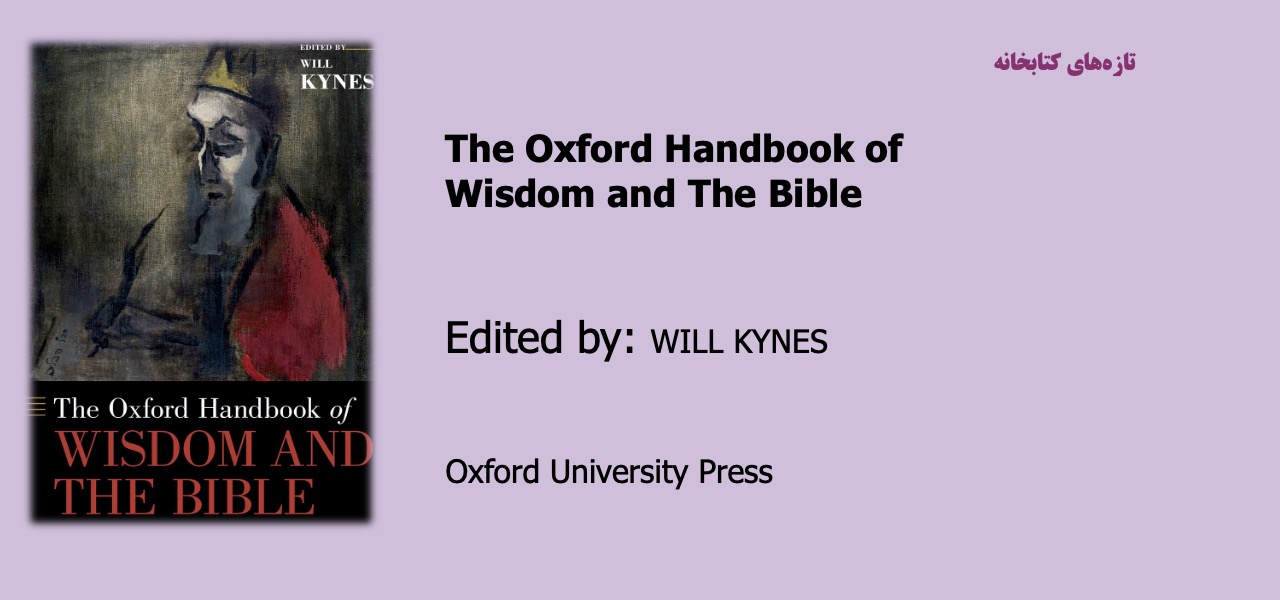The Oxford Handbook of WISDOM AND THE BIBLE

The concept of wisdom holds a prominent place in the social and theological imagination of the biblical authors. Wisdom is presented as one of God’s defining characteristics (Isa 31:2; Job 12:13; cf. Rom 16:27), present with the deity at creation (Prov 3:19; 8:27–۳۱), the product of obedience to the Torah (Deut 4:6; Ps 119:98), and a divine gift (Prov 2:6; Jas 1:5). It is identified with the fear of the Lord (Prov 1:7; 9:10; Job 28:28; Ps 111:10), righteousness (e.g., Prov 10:31), and life (Prov 13:14), as well as with skill in practical matters, such as spinning yarn (Exod 35:25), sailing ships (Ezek 27:8), proper speech (Prov 12:18;29:11), and amassing wealth (Ezek 28:4; Prov 8:18). The wise, those who possess wisdom in special measure, are respected for their just judgments (1 Kgs 3:28) and insightful counsel (Jer 18:18). In the New Testament, wisdom is associated with Christ (1 Cor 1:24,30), and is one of the attributes for which he receives eternal worship (Rev 5:12). The Christian community is expected to be characterized by its own distinctive wisdom (Jas 3:13, 17), different from that of the Greeks (1 Cor 1:22–۲۵).
Within biblical scholarship, the discussion of wisdom and the Bible has been primarily oriented around Wisdom Literature as a category of biblical texts centered around Proverbs, Ecclesiastes, and Job, though sometimes including Psalms and Song of Songs, as well as Sirach and Wisdom of Solomon, and even spreading its “influence” into additional texts across the canon. These texts have been associated with a group called “the wise” in the Hebrew Bible, who are credited with promulgating a “Wisdom” tradition, with its own distinct theological beliefs and literary forms of expression. Therefore, this volume includes chapters on features of Wisdom Literature as a category (Part IV), its relationship to other types of literature in the Hebrew Bible and Second Temple period (Part V), and each of the texts commonly associated with it (Part VI).
مطالب مرتبط

کتاب تمرین درمان شناختی – رفتاری برای مشکلات سلامت روان
۱ / اردیبهشت / ۱۴۰۴

درآمدی بر روانشناسی خرد
۱ / اردیبهشت / ۱۴۰۴

سرشت – چگونه سیمکشی مغزهای ما هویت ما را تعیین میکنند؟
۱ / اردیبهشت / ۱۴۰۴

